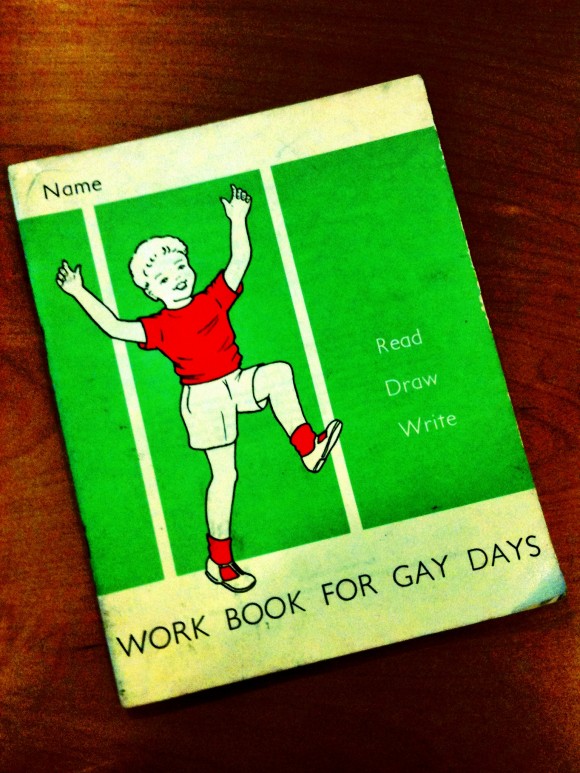School Yard Lessons
Last week I started going through the boxes that contain my personal library. There are a lot of books to unpack, along with papers and past writing projects. And, there are some bits of personal memorabilia, such as old school books. It was fun to look though books from Grade 3. In that year I […]
Last week I started going through the boxes that contain my personal library. There are a lot of books to unpack, along with papers and past writing projects. And, there are some bits of personal memorabilia, such as old school books.
It was fun to look though books from Grade 3. In that year I was in a composite class, made up of Grade 3 and Grade 4 students. We had a wonderfully un-PC teacher. I remember one day sheepishly walking back to class after school, having made it all the way to the front gate without my school bag. “Back so soon boofhead?” my teacher burst out as I walked in to collect my bag. It was my favourite school year.
Those Grade 3 books looked rich and vibrant, with plenty of creativity and colour. However, my Grade 4 books were not as rewarding to digest. In fact, in every subject they seemed to taper off – the writing became less neat, the art less thought out and evocative and the assignments more often incomplete. In fact, compared to Grade 3 I have few classroom memories from Grade 4.
That year my parents decided to give me the chance to do Grade 5 and 6 in the O.C. programme. Despite sounding like a TV show, O.C. in fact stood for Opportunity Class, a state school selective programme for gifted or talented kids. It’s one of life’s unsurprising coincidences that I wound up marrying a woman who also went through the same O.C. programme.
One quirk of the O.C. system was that the selective classes were held in a normal state primary school. So, although we were in our own little “gifted” bubble, we shared buildings, playgrounds, library and canteen with “normal” kids. There are plenty of memories from those years that made me doubt the value of placing kids in separate streams according to test results and the wisdom of labelling abilities and disabilities in such black and white ways.
During that time I had my first experience playing school sports, touch football (rugby), in fact. Two teams were formed and I was chosen as vice-captain of the “A” side. I was thrilled that my (limited) skills and leadership had been recognised. To be honest, all I had done was manage not to drop a pass while yelling a little on the field, trying to get our back-line in shape, during defence and attack. But, growing up in a sports-mad culture, the honour meant a lot to me.
However, some parents were concerned that their “gifted” progeny were going to mix with “normal” kids in the sports programme. So a plan was hatched for the teams to be segregated. That meant the three of us O.C. kids picked in the top “A” side were dropped to the “B” side. Moreover, we had to recruit a couple more O.C. kids to make up the numbers – and, to be blunt, our new recruits could barely catch or pass.
The captaincy duties went to a kid that had been picked in the “A” side, but had not been given a leadership role in that team and the vice-captain was a kid who had been in the “B” side, also without a leadership role.
So, I went from being vice-captain of the “A” side, to squad player of the “B” side, not because of my performance, but because some parents felt uneasy about their kid’s cultural purity.
To add insult to injury, our “gifted-kids-only” team sucked. We played poorly, without spirit and deserved our regular thrashings at the hands of teams that possessed real school pride. As for me, even though I went on to be represent my High School in almost every sport (often as captain or vice-captain), I never played competitive touch football again.





